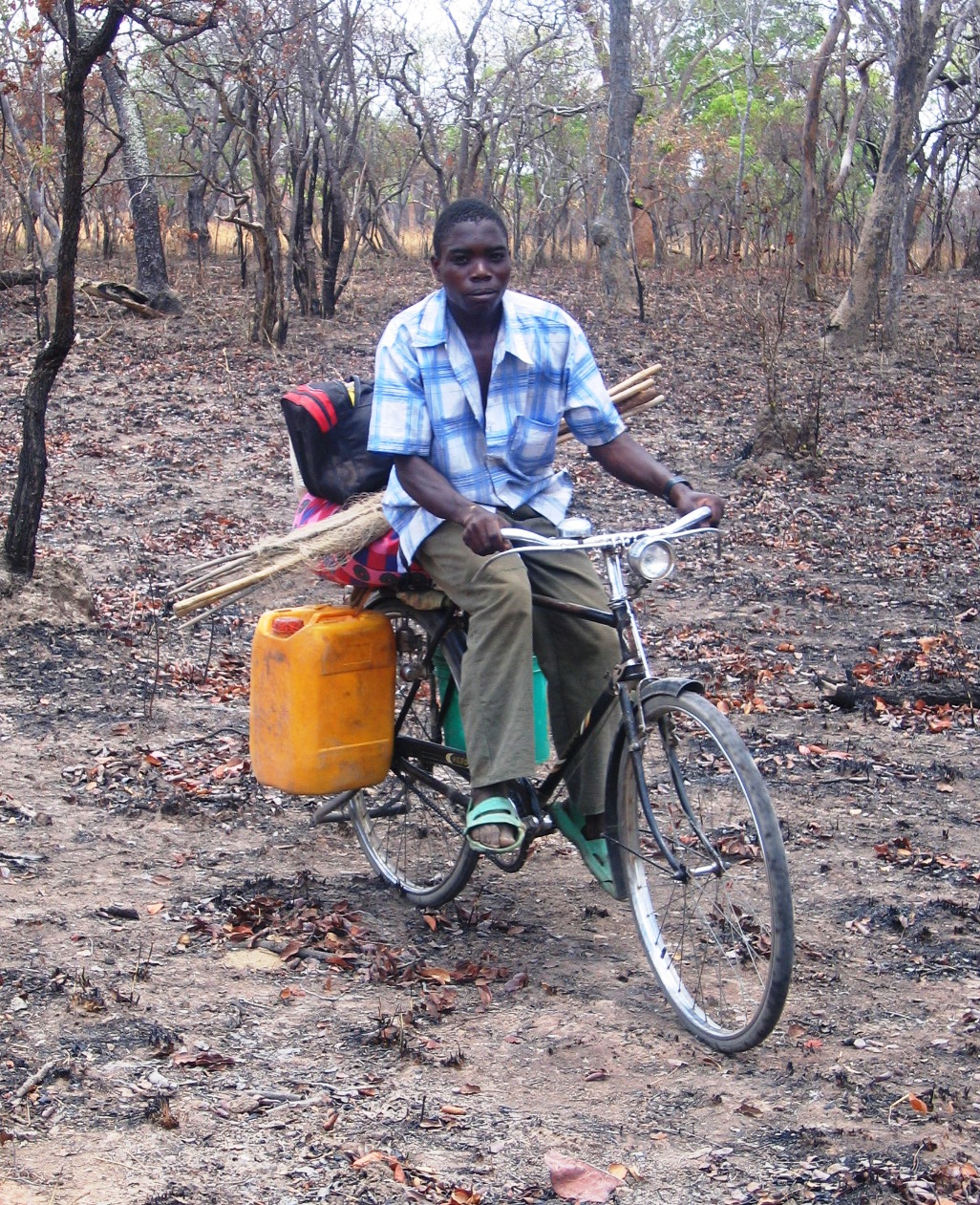My brother, Phillip, in reaction to my petrol ramblings, sent me this photo to remind me of a petrol miracle we had once lived through together.
It happened on the way out from the far north of Mozambique, near the border with Tanzania. As must be expected of experienced wilderness wanderers, we had stashed some petrol in the bush to get us back to Lichinga, which was where we hoped to find a filling station with some stock and a functioning pump – a reasonable assumption at best.
As it turned out, the stash was no more than a false sense of security that probably contributed to us succumbing to the treacherous conspiracies of the Spirits of Adventure, which cunningly lured us ever further, away from it, and silenced the nagging voices of good petrol sense.
As we finally butted our way back through the bush to our stash, confidence thinned to uncertainty and then deteriorated to foreboding as the needle started to threaten ominously around the dreaded E.
Still, of course, the first stuttering and re-catch of the old straight six was met with flat denial that it could have anything whatsoever to do with petrol. The final cut-out of the engine and the sickening crunch to silent standstill over the loose gravel of the wheels put an end to that, and heralded the blame phase – “but I thought, you…” and “no, but you said…” and “look I told you…”
The finality of the lifeless vehicle and the realisation that we were still very far from our petrol stash, quickly steered the dialogue in a more sensible direction and consideration of our situation and our options – more correctly stated, our SINGLE option: get walking to the stash and carry a container of petrol back. It would take about two days to get there, and probably at least three back, carrying the petrol – five days, therefore, the price for our ill judgement.
After discussions with old Kgalilaga, we decided to despatch two of the carriers to the stash. They were the youngest and hardiest among us, with the best chance of making it there and back. Of course the one key question in a little enterprise like this is, can you carry enough water with you to make it there and back. Fortunately, in this case we had enough water on the vehicle and we worked out if we gave them a backpack filled with every container we had, full of water, they should be able to make it – just.
At daybreak the next morning, after a night ridden with bitter self-blame, Old Kgalilaga came with a tantalising suggestion. There was a little bush village about a day’s walk to our north-west. It was connected by a footpath to the main “road” further west that connected Lichinga to the Tanzanian border. He had heard that enterprising merchants carried basic goods along the footpath from Lichinga to the village by motor cycle. There might, just might be some other enterprising entrepreneur that kept petrol at the little village to supply them for their journey back to Lichinga.
We decided this was worth taking a chance on.
Old Kgalilaga was the only one with any idea of where the village was, and if he left immediately and walked only through the cool of the morning and then in the afternoon into the night, he should make it with the single bottle we had left, filled with water. He was despatched through the bush.
Another glum night and almost a day dragged by, but then, as the sun was beginning to touch the treetops, Kgalilaga materialised out of the bush at a shuffling trot, followed by this most splendid of apparitions: Petrol Distributor, African Bush Version.
Our elation almost caused us to miss the genius of his offering: a vehicle able to navigate almost any terrain, including virgin bush, and, loaded with forty litres of fuel (a twenty litre container on each side, suspended from the carrier), at maximum utilisation of capacity and available propelling power. And just to make it even more quaint, the rear carrier adapted to take a passenger (in bush taxi mode), now utilised to accommodate overnighting equipment (as might well frequently be required, given the operating conditions).
Needless to say, Phillip and I both had new heroes.
A remark about the fascinating, tragic, joyful, surprising, awe-inspiring, frustrating, wonderful continent I live on: this one man with his bicycle and his two twenty litre containers and his modified rear carrier so it can take other goods or a passenger is an example of the astonishing economy that threads its ethereal tentacles all over Africa, through the streets of big cities, along main roads, into the blackness of mine shafts, along shining factory floors, through warrens of plastic towns, between mud huts of rural villages, along footpaths and elephant paths into the remotest wilderness. It is below the “visible” economy. It is unmeasured. Its size is unknown. It is invisible, but it pops up when needed through workings obscure and hidden from all but those partaking in it.
It blows the mind and exhilarates the spirit.


Thank you for the cooment Steven.
Thank you Salome
Beautifully written! Thanks for sharing!! Really enjoyed that :)
It is invisible, but it pops up when needed through workings obscure and hidden from all but those partaking in it
This is so well said Hoffman!